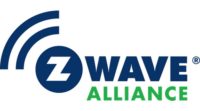The Open Connectivity Foundation (OCF), an Internet of Things (IoT) standards body, announced that products from BSC Computer GmbH, COMMAX, Haier, LG Electronics, Resideo, Samsung Electronics and SURE Universal will be showcased in completely interoperable smart home demonstrations at the OCF IoT Breakthrough press event at the Barrymore Restaurant in Las Vegas on Jan. 6, 2020, from 3–6 p.m. These devices will complete OCF 2.1 certification in 2020, ensuring robust and secure connectivity between devices. Many of these and other industry-leading OCF member companies will be commercially launching products based on the OCF specification in 2020.
Research shows that revenue from the smart home market is expected to show an annual growth rate of 17.6 percent, resulting in a global market volume of more than $141 billion by 2023. As the smart home market continue grow, secure interoperability will be key in making the IoT successful. The OCF Certification Program helps manufacturers create products that work with other OCF Certified IoT devices regardless of their form factors, operating systems, service providers or transports. OCF’s 2.1 specification, a recognized ISO standards specification, ensures this interoperability is built into all OCF Certified devices.
The OCF supports standardized procedures for bridging to other IoT ecosystems and provide detailed implementations for Bluetooth, EnOcean, Zigbee and Z-wave protocols.
“In the near future, smart homes and buildings will have typically over 200 different products improving comfort, security and energy usage,” said Jörg Hofmann, CEO, BSC Computer GmbH. “Having all of these powered by mains cables or batteries which need to be regularly changed or re-charged is simply not practical. By introducing the EnOcean energy harvesting wireless standard into the OCF world, BSC Computer has enabled the simple addition of multiple ‘peel and stick’ maintenance-free sensors and switches into their smart buildings via the BSC smart secure gateway, a major expansion and improvement of the excellent interoperable OCF eco-system.”
“The smart home today is anything but smart, there are too many apps and competing communication protocols to make it happen and homeowners are increasingly frustrated,” said Scott Harkins, vice president and general manager, Connected Home, Resideo. “The OCF Universal Cloud Interface standard will greatly simplify and reduce the work associated with IoT Cloud to Cloud communications. By implementing this as an industry standard, we’ll reduce the need for one-off, cloud to cloud connections, streamlining our development work and helping simplify the smart home experience for consumers.”
The OCF is now introducing the OCF Universal Cloud Interface (UCI), the industry’s first solution to unify the IoT ecosystem through cloud-to-cloud connectivity based on OCF’s work with Open Standards. The OCF UCI is a programming interface that can be used to standardize connectivity between different manufacturers’ cloud servers, and between devices and the cloud. This cloud application programming interface (API) helps the IoT industry to streamline partnerships and avoid implementing and maintaining numerous proprietary programming interfaces at once.
Developing and maintaining proprietary APIs when companies collaborate requires visibility and/or control between devices and services on both companies’ clouds. This is expensive in both time and money. As the number of IoT devices expands and the need for seamless operation between different manufacturers’ systems grows, the proprietary approach does not scale and thus slows the growth of the ecosystem, according to OCF. The OCF UCI is an industry-standard cloud API, solves this issue and can be used for communications with a plethora of collaborating companies.
“Different configurations of the same OCF UCI can simplify collaboration between device manufacturers who wish to produce IoT devices but do not have the ability to develop and support their own cloud applications,” said John Park, executive director, Open Connectivity Foundation. “This configuration can also help companies that have cloud applications and wish to expand the number of devices that can connect to them. Specifically, the manufacturers can produce a single device that connects to any cloud application provided both implement the OCF UCI API. This enables a multitude of manufacturers to produce secure, interoperable IoT devices and delivers welcome flexibility to end users.”
The OCF UCI is based on the OCF’s proximity framework that enables communication between IoT devices and applications over a local network. It uses the same data models and core technology. As with OCF proximity communications, an open source implementation is available.



